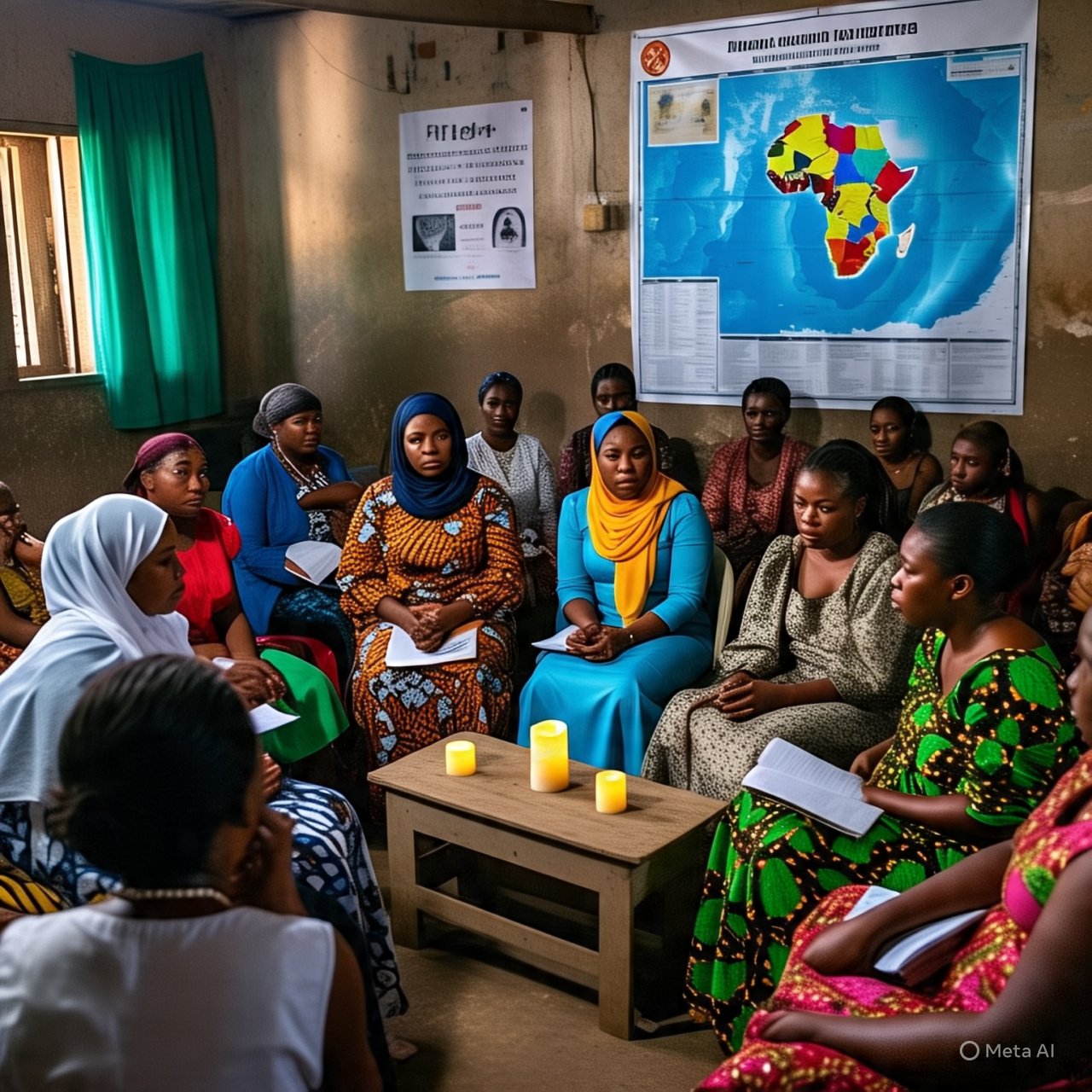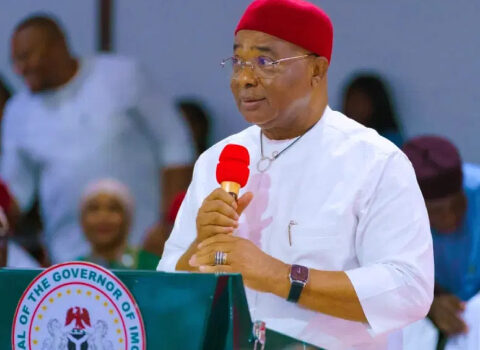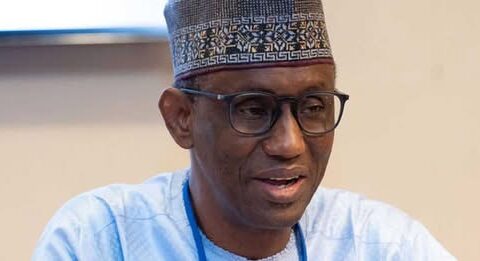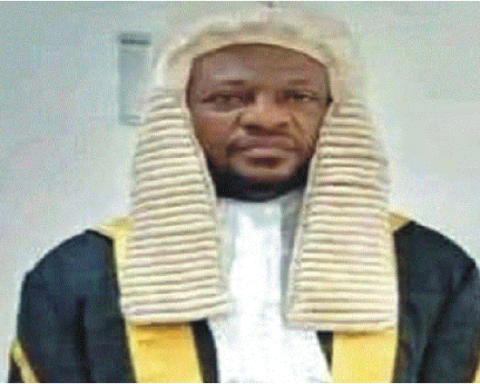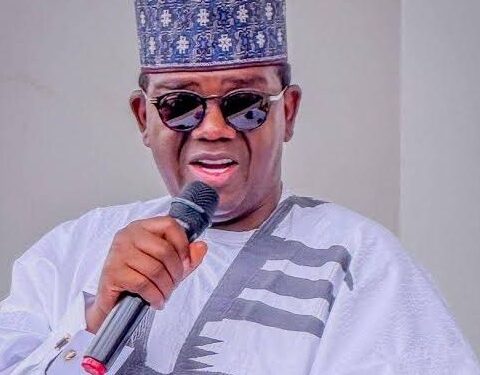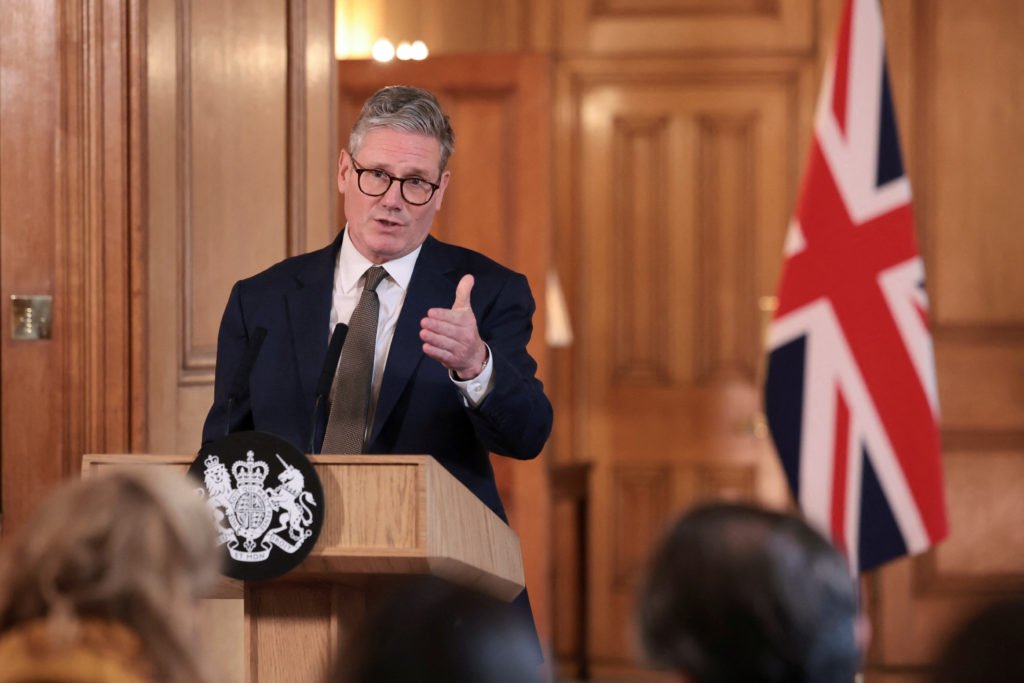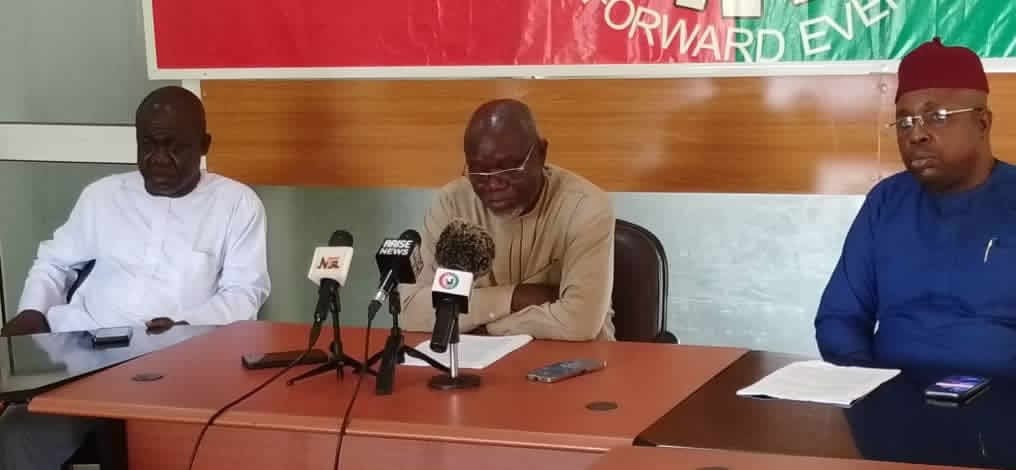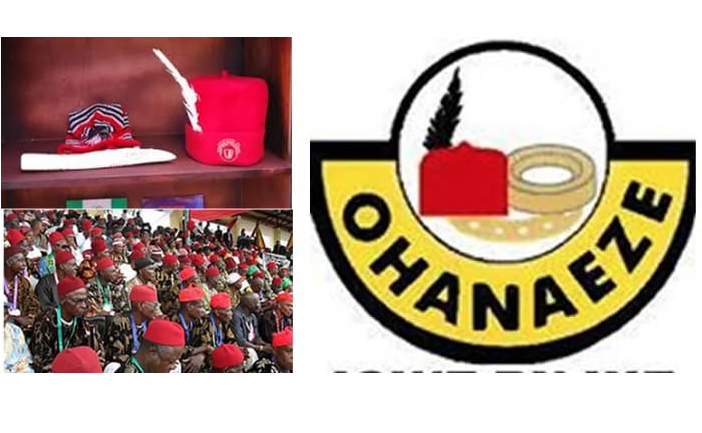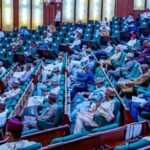By Emmanuel Gandu
QUOTE OF THE DAY
“In his first year in office, president Barrack Obama pulled us back from the brink of the Great Depression and worked to lay a new foundation from economic crisis to economic growth.
The president identified three key strategies to build that lasting prosperity : innovation, investment, and education.”
– Tom Vilsack
INTRODUCTION
That Nigeria is going through her worst economic crisis ever is never in doubt. The level of hunger in the land is better imagined than spoken of. Unemployment figures are the highest on the African continent, levels of depression in individuals is so high that suicide cases are on the increase. Armed robbery, kidnapping, banditry, terrorism and all kinds of criminality have reached unprecedented levels.
Unfortunately, divorce rates have defied all counselling efforts of the clergy on the pulpit. Corruption is now Nigeria’s official lingua franca. By the end of 2025, the number of out-of-school children will hit 20 million – the highest in Africa.
Lamentably, living in Nigeria in 2025 is like living in hell on earth.
Nigeria is like a rudderless ship captained by a deaf crew of men on the turbulent waters of economic crisis who can’t hear the ‘Mayday’ distress calls as they head towards a shipwreck.
IN THE BEGINNING
Studies have shown that investing in women has a positive multiplier effect on society. When a woman is empowered she is not only able to provide some level of better life for her children, but also contribute meaningfully to the economy and national progress. They are better able to contribute towards solving nagging economic and social problems.
Nigerian women have been known to play leading roles in critical national issues dating as far back as the pre colonial, pre and post colonial independence.
Worthy of mention is the ‘Aba Women Riot’ of 1929 that rejected the burden of high taxation on the people, especially the taxation of women imposed by the British colonial rule in Igbo land.
Also of mention is Emotan, the 15th century ancient Benin warrior, the leadership role Iyalode (women leader) of the old Oyo Empire, the legendary warrior Queen Amina of Zazzau, the heroic exploits of Moremi during the Ife – Modakeke wars, and many others.
Post colonial Nigeria witnessed the emergence of prominent women like Margaret Ekpo and Mrs. Janet Mokelu as members of the Eastern House of Assembly in the first republic, Mrs. Funmilayo Ransome-Kuti in the politcs of the Western Region, Hajiya Gambo Sawaba who waged relentless battles for the political, educational and cultural emancipation of women in Northern Nigeria.
In the contemporary era, mention must be made of the women in the Ivory Tower. The likes of Professor Alele Williams the first female university vice chancellor in Nigeria, Professor Dora Akunyili one time NAFDAC Director General, Dr. Oby Ezekwesili and Hajiya Aisha Yesufu of the “Bring Back Our Girls’ campaign.
THE IMPERATIVE FOR A GENDER EQUALITY
“In a world facing multiple crises that are putting immense pressure on communities, achieving gendar equality is more vital than ever. Ensuring women’s and girl’s rights across all aspects of life is the only way to secure prosperous and just economies, and a healthy planet for future generations.” – UN WOMEN (2023).
Women Liberation Movement was a political alignment of women and feminist intellectualism that emerged in the late 1960’s primarily in the industrialized nations of the Western World.
This movement affected change politically, intellectually, culturally throughout the world including Africa and Nigeria. Their objective was to realize human rights and equality for women. To achieve economic, psychological, and social freedom to be necessary for women to progress from being secon-class citizens in their societies.
However, most societies in Africa and indeed Nigeria are still tied to the cultural, religious, and legal validity of patriarchy, male chauvinism, gender disparity and inequality, and all forms of discrimination against women.
A PLACE FOR WOMEN IN ISLAM AND CHRISTENDOM
The female gender is a strong veritable factor that cannot be ignored in global affairs. It’s in realisation of this indispensability that bureaucratic, military, and civil institutions place women in high esteem. Religious institutions have equally been in the forefront, as the two major world religions – Christianity and Islam continue effectively in galvanizing the female gender in this direction. This granting is captured vividly, hence encapsulated in the two Holy Books of the Qur’an and the Bible.
In the Qur’an, women are important and play significant roles on the aspects of the good morals and virture of womanhood taught in Islam. The wives of the Prophet Mohammed, peace be upon Him play exemplary roles in guiding and showing the way for the Muslim woman. Aside from devoting a whole chapter for her, Maryam (Mary) is mentioned 70 times in the Qur’an.
In the Bible, Mary (the mother of Jesus) is the Queen of peace. She is mentioned by name 12 times in the Gospel of Luke, 5 times in the Gospel of Matthew, 1 time in the Gospel of Mark, and 1 time in the Acts of the Apostles.
THE ODDS AGAINST NIGERIAN WOMEN : FACTS AND FIGURES
(1) International Women’s Day is a yearly celebration that calls on women to assume more and higher positions.
However, 2025 marks the 30th anniversary of the ‘Beijing Declaration of 1995′ without significant achievement from Nigerian women on the ’12 Strategic Goals’ including political participation.
(2) Women make up about 50% of the world population yet they are never farely represented in governance, politics, bureaucracy, etc in order for them to help meet the ever increasing complex challenges of today’s society which men find difficult to overcome.
(3) According to the 2006 population figures by the National Population Commission (NPC), Nigeria has a population made up of 51% males and 41% females. However, this figure have never translated in favour of women in either elective or appointive positions.
(4) Women in politics :
• Of the 109 Senators in the 9th assembly (2019 – 2023) there were only 8 women senators.
• Just one(1) woman senator came from the 19 Northern states in the 9th senate.
• The 10 th senate (2023 – 2027) have only 4 women senators.
• Of the 360 Honourable members of the House of Representatives in the 9th assembly(2019 – 2023) only 13 were women.
• The 10th assembly(2023 – 2027) of the House of Representatives have 16 women honourable parliamentarians.
• No woman has ever been elected as governor in the 4th republic.
• The Gender and Equal Opportunity Bill (GEO) sponsred by Senator Abiodun Olujimi since 2016 is lacking in teeth and bite.
• On the global scene, Nigeria is very poor on the Statistics Table of women parliamentary representation survey. Out of 193 countries surveyed by the United Nations, a sample shows the ranking :
Rwanda – at no. 1
Namibia – at no. 7
S. Africa – at no. 10
Kenya – at no. 90
Niger – at no. 122
Nigeria – at no. 181
WOMEN AS BETTER LEADERS THAN MEN ?
The argument as to whether women are better leaders than men depends on the side of the divide one is coming from. It’s not even a matter of which side presents the most persuasive argument. The facts remains and reminds the reader that :
✓ No country is known to have gone to war where million lives are killed during the reign of a woman.
✓Nations have been known to experience stability, economic development, and industrial boom during the reign of a woman.
✓ As mothers, women are endowed with firmness, democratic qualities, sympathy, and emphathy in the affairs and conduct of governance.
Some of these past women world leaders of honour include Bandaranaike of Ceylon(now Sri Lanka), Indira Gandhi of India, Golda Meir of Israel, Margaret Thatcher of the UK, Benazir Bhutto of Pakistan, Ellen Johnson Sirleaf of Liberia, Joyce Banda of Malawi, Theresa May of the UK, Angela Markel of Germany, and Aung San Suu Kyi of Myanmar.
On the contrary,
✓ men are rather schismatic, ruthless, insensitive, selfish, dictatorial, and machiavellian in governance thereby prone to leading towards volatility and chaos sometimes with bloody consequences
✓like in the case of Adolf Hitler of Germany, Benito Musolini of Italy, Gaddafi of Libya, Saddam Hussein of Iraq, Omar El Bashir of Sudan, Assad of Syria, Augusto Pinochet of Chile, Idi Amin of Uganda, Sani Abacha and Muhammadu Buhari of Nigeria.
✓ Unarguably, men have led Nigeria to a catastrophic bitter 30 month civil war from 1967 – 1970.
✓ Men have plunged Nigeria into an unnecessary Boko Haram and Fulani herdsmen terrorism.
✓ The menace of kidnapping and banditry is driven by men.
✓ Communal and tribal conflict is fuelled by men.
✓ Men have earned for Nigeria the infamous notorious no. 3 position on the World Terrorism Index (2020).
✓ Men squander the wealth and resources of Nigeria through corruption, nepotism, political banditry, and etcetera.
STRATEGIES FOR ADDRESSING NIGERIA’S ECONOMIC CRISIS BY WOMEN
Although women are becoming appreciably involved in Nigeria’s governance, politics, industry, and entrepreneural pursuit, they are still faced with challenges that limit their potentiality. Therefore, to build an economic crisis free society, the following exit strategies will go a great deal towards addressing some of the challenges that have become a cog in the wheel of progress are recommended :
(1) Two facilities exist to emancipate women in the world –
a. Beijing affirmative
b. Women in Public Service Project(WPSP) grants a 50-50 representation between male and female in the work place.
These are global women leadership initiatives aimed at empowering generations of women around the world, and to mobilize them on issues of critical importance towards development.
(2) Women professionals in various fields of endeavour should harness their potentials to rescue Nigeria from the endemic economic crisis the men have been unable to reverse.
(3) While numerouse rescue mechanisms exist to ensure women gain entry into top levels of public service, politics, business and enterprise, education, science and technology where they would participate in the decision making processes, they should at the same time be aware that the men will continue to dominate and keep off the women from robbing shoulders with them.
(4) Women to aggregate, compile and maintain a data bank on “Women Who is Who” in all professions and sphares of human endeavour in public and private enterprise. This will serve as a diagnostic tool to highlight the sectors, and a pool from where women can be drawn for national assignment in order to contribute their unique skills towards solving matters of national development.
(5) Women should endeavour to create their own mechanisms for discipline, in-house keeping, code of conduct, dogmas, rules and regulations, etc in order to regularly churn out a crop of disciplined women professionals worthy to be presented, entrusted, and put forward for positions of leadership.
With such women of integrity, Nigeria will be emancipated from economic crisis.
(6) Women leaders to galvanize the rest to form social groups, clubs, associations to aggressively seek upliftment and self help programmes and assistance from donor agencies for the vulnerable women population. This will ultimately provide them with the enablement, conducive opportunities and environment, the independence to cultivate their skills, realise theire potentials for personal development towards the benefit of the entire society.
(7) Making public and sharing the stories of female leaders who have confronted the odds and successfully navigated the various corridors on their journey to the top as a way of inspiration to those who wish to aspire to the level of their mentors.
Peace 🙏
Follow us on all social media platforms @dailyquery for news and analyses around the globe.
